While the various SRAM brands have had an offering for pretty much every part of your bike frame, the obvious gap in their armour has always been wheelsets. They’ve had X9 and X7 hubs with rebranded rims on offer for those who absolutely needed a complete groupset on their mountain bike but, with the acquisition of Indianapolis based carbon fibre wheelset specialist Zipp a few years back, it was always on the cards that high end MTB wheelsets bearing the SRAM name would be coming.
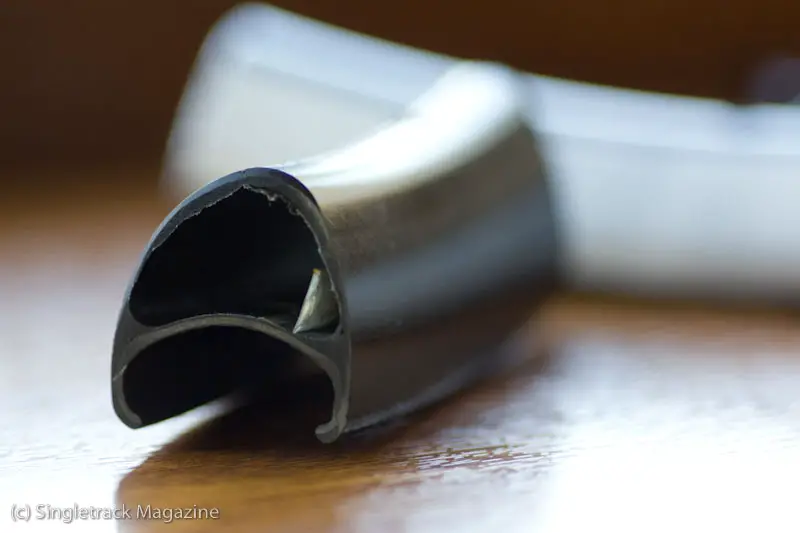
With that in mind, the announcement of the alloy rimmed Rise 40 and carbon fibre Rise 60 mountain bike wheelsets earlier this year wasn’t much of a surprise. They haven’t rushed to bring them to market though; it’s taken SRAM two years to develop them to their satisfaction, a team of eight engineers and product developers working solely on wheelsets – and it’d be wise to assume that the Rise 40 and Rise 60 are just the tip of the iceberg.
Both the 40 and 60 are aimed at ‘XC/trail riders’ – and to clarify exactly what that means, we’re talking about riders up to around 120mm of travel, hence the lack of 20mm through-axle fitting for the front hub. That said, the hubs on the Rise 60 have interchangeable end caps to convert between 9mm QR and 15QR on the front and QR 135 or 12x142mm at the back. The Rise 40 has options available for QR/15mm at the front and 135/142 at the back. With people being caught between older and newer standards it’s a wise move for the pricier carbon option.
Both wheelsets use a 19mm wide asymmetrical rim and have 24 bladed straight pull spokes, the Rise 60 having Sapim CX-RAY spokes, but that’s where the similarity between the two wheelsets ends.
Rise 60
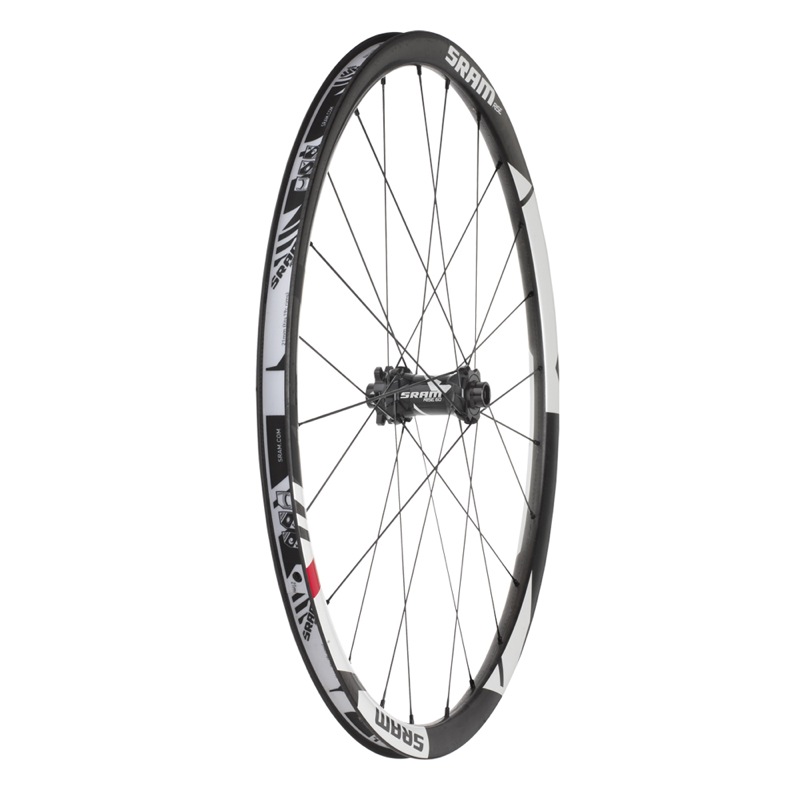
As the top line carbon fibre wheelset, the Rise 60 uses an all-new hub with tangential pull spokes. SRAM say that when combined with the Indianapolis-made offset carbon fibre rim, they’ve tuned the ride not to produce the stiffest or the lightest but a wheel with the “best riding experience”, something that is “lively and light” but also has a balance of comfort as well.
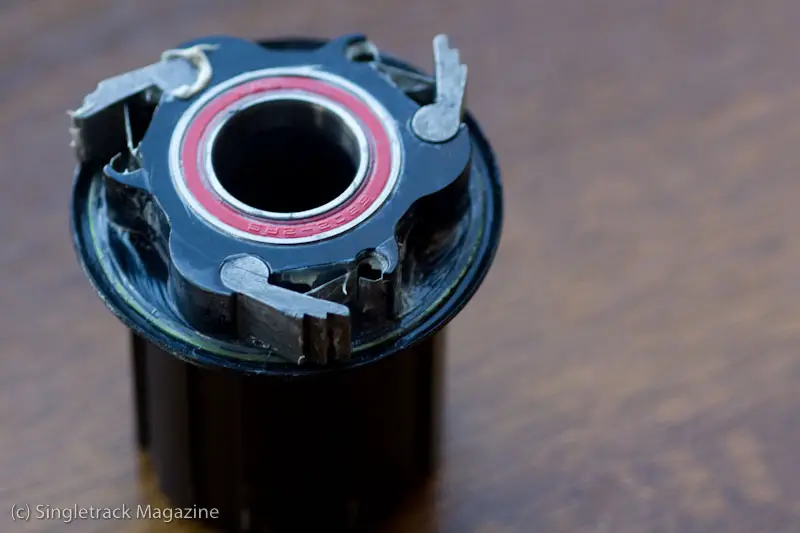
The cartridge bearings should be simple to replace when the time comes and the whole setup is easy to strip, whether that be for maintenance or to change end caps to suit different axles.
The freehub mechanism has seen plenty of thought too. With 54 teeth on the ratchet ring, the engagement angle is a rapid 6.7°; for comparison a Hope Pro 2 hub has 24 teeth and a Chris King hub has 72. Motion is transferred using three sprung pawls with three teeth per pawl for postive, solid engagement.
The Ride
The SRAM test day was based from the lovely accommodation at The Afan Lodge, a mere stones throw from the trails of Afan Forest Park in South Wales. As you’d expect from a lightweight carbon wheelset the feeling of effortless acceleration is quite addictive and the 26″ versions lived up to previous expectations of top end carbon wheels. The loss of rotating mass results in a lively, rapid feel. Changing direction was similarly instant and the pickup from the freehub was suitable lag free, extremely positive and surprisingly quiet.

On the rocky trails and high speed corners of the W2 descents, the wheels tracked true with no odd twangs when cross-threaded between rocks and without flexy feeling oddness when piled into berms. We’re getting a set to test over the longer term which will be the true test of these wheels, but first impressions are promising.
Now, what you’ve been waiting for; just how much do they cost? A set of SRAM Rise 60 wheels will set you back the princely sum of £1,550 when they become available in late March 2012. That’s a whole stack of money but actually represents quite decent value in the high priced world of carbon wheelsets. For the big wheeled brigade there will be a 29er version too.
Our only slight gripe is the lack of compatibility with a 20mm through axle; given their XC/Trail tag it isn’t such a great problem but there are plenty of people out there with 20mm through axles on their forks that aren’t downhillers.
The wheels do use a drilled rim but a tubeless rimstrip kit will be available for those that have forsaken innertubes. The wheels will also come with a two-year warranty and SRAM say that a crash replacement scheme may come when they’ve worked out the details, something that’ll be welcome news to anyone considering forking out such a large chunk of cash on an item that lives in close proximity to rocks.
Rise 40 wheelset
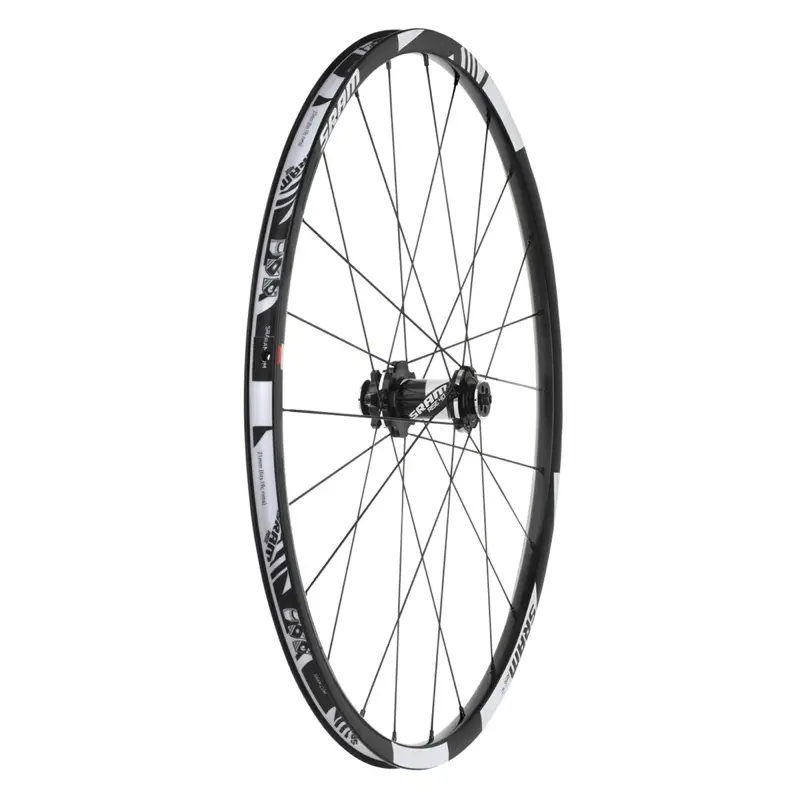

If the thought of handing over a grand and a half for some wheels then the Rise 40 alloy wheelset will be much more up your street. Available with all the same axle options and as a 29″ wheelset, they use a hub that’s based on the previous X9 hubs but with
24 bladed straight pull spokes. Again the rim has asymmetrical spoke holes to even out spoke tensions and angles and the hub features a rather neat but simple system to prevent spoke heads popping out of the hub under extreme compression – a small rubber ball that sits behind the spoke head.
Again, the Rise 40 is likely to be available with a tubeless rimstrip kit and the wheelsets should be available from January. Price for a pair will be around £350. Conveniently you’ll get a full set of adaptors and QR skewers included, which should cut down on the hassle of getting the correct axles size and so forth.
Monarch Plus shocks
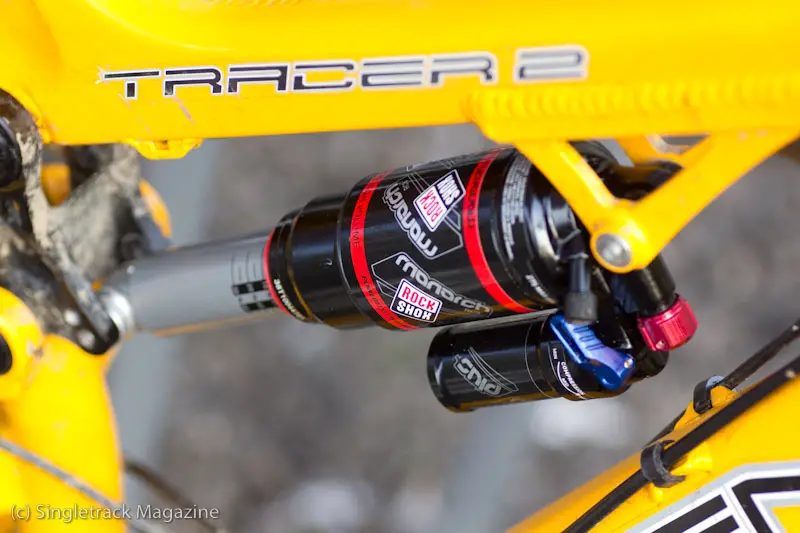
The evolution of Rock Shox rear shocks has been gaining momentum since the introduction of their Monarch series of air shocks and downhill biased Vivid coil and air units. While there are no major changes to the Monarch series for 2012, we were lucky enough to spend some time having the Monarch Plus shocks fitted to personal bikes and tuned to taste with the help of Rock Shox technicians Torben and Danny.
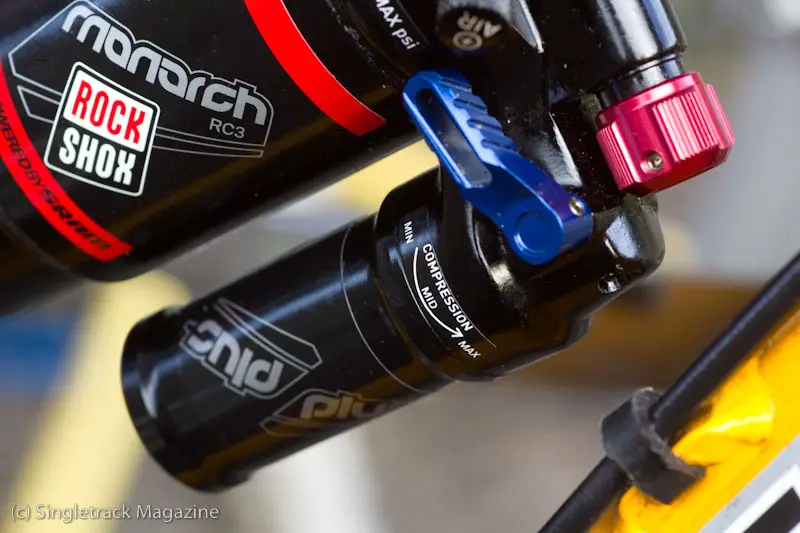
The Monarch Plus is designed to be a harder hitting version of the standard Monarch, using an external reservoir to better handle the extra heat generated on longer, faster descents. It’s designed to be lighter than the full-on DH Vivid Air but with comparable performance and resistance to fade. Starting stroke rebound is adjustable via the red dial, the end stroke being pre-set in the shock. There are three levels of compression damping adjustable via the blue lever on the side.

After a first run to compare the tune, Torben and Danny listened to our feedback and made some tweaks – and it was out for another run. It’s amazing how much the feel of a bike can be changed; something that felt squishy and slow felt exactly the opposite after a bit of expert tuning. Once set up, the Monarch Plus felt active and supple, coping well with the mix of fast rocky sections, compressions and drops without any fuss. We’ve got a pair of fine tuned Monarch Plus shocks on test and we’re looking forward to spending some time on them over the winter months.
Rock Shox have been doing a lot of work with a number of bike brands to offer a wider variety of tunes designed to suit different bikes, with altered compression and rebound damping tunes as well as air can volumes being tweaked to get the most from the suspension design in question. Expect to see them as original equipment more frequently in the future…
Comments (5)
Comments Closed















“there are plenty of people out there with 20mm through axles on their forks that aren’t downhillers”
RockShox (SRAM) forks only introduced a 15mm options in 2010/2011. Interesting that SRAM have already forgotten about customers they had before then…
talk of £1500 wheelsets but no mention of weights?!
Didn’t weigh them myself but;
Rise 60 claimed weights are 1,330g for a pair of 26″ and 1,420g for the 29ers.
Rise 40 claimed weights are 1,710g for 26″ and 1,840g for the 29″.
I’ve got 20mm maxles on all my Rockshox (SRAM) non-downhill specific bikes!
“‘XC/trail riders’ – and to clarify exactly what that means, we’re talking about riders up to around 120mm of travel, hence the lack of 20mm through-axle fitting for the front hub”
Reba 120mm 20mm? Was there a 20mm SID?
“we’re supporting both 20x110mm and 15x100mm with. Our feeling is that there are a lot of people out there today who have already invested in 20x110mm hubs and wheels and we don’t want to write those guys off. We want to make sure they aren’t suddenly outdated in terms of their investment in products that they’ve purchased”
A SRAM quote from, 2011 .. so thats 1 year before you’re written off then?